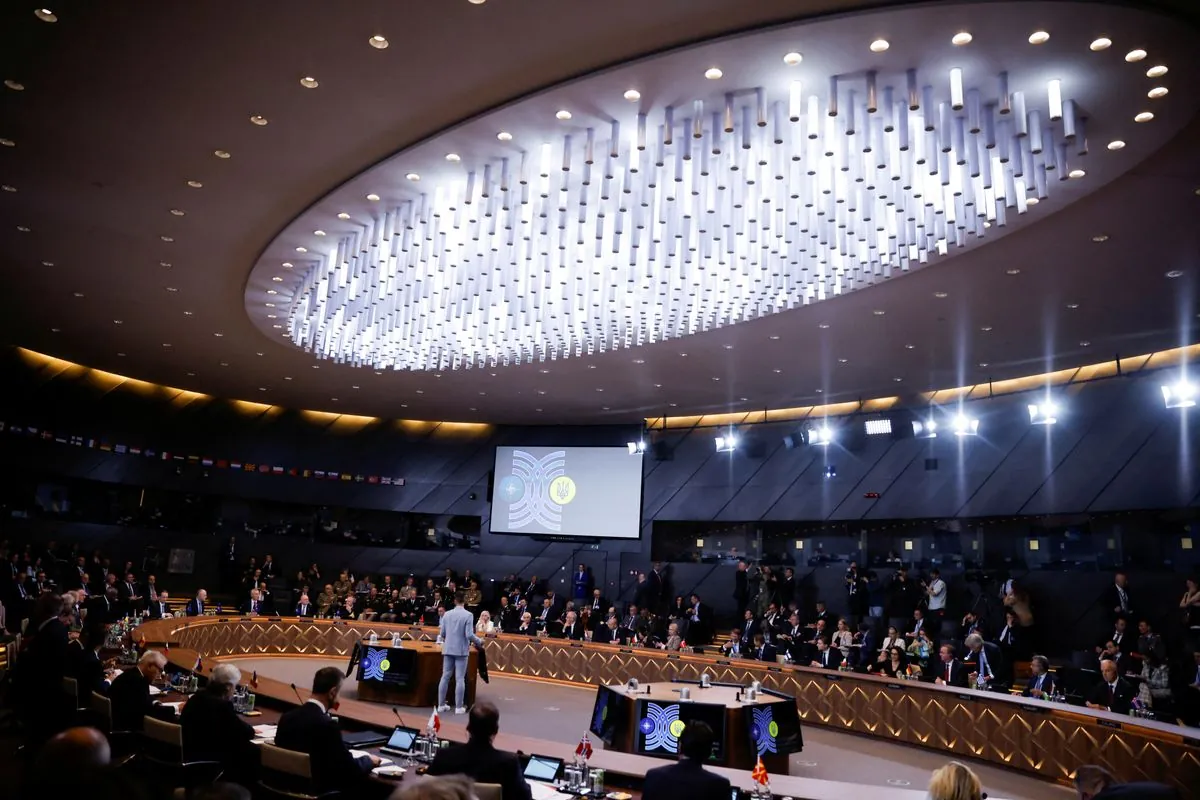In a recent gathering of the NATO-Ukraine Council, alliance members have reaffirmed their dedication to bolstering Ukraine's defensive capabilities. This commitment comes as Ukraine continues its daily efforts to intercept Russian missiles, a year and a half into the ongoing conflict that began on February 24, 2022.
Jens Stoltenberg, NATO Secretary General since October 2014, emphasized the critical nature of sustained support for Ukraine. He stated that the country's ability to maintain its defenses necessitates an increase in both supply and overall assistance. This statement underscores the alliance's recognition of Ukraine's ongoing struggle against Russian aggression.
The NATO-Ukraine Council, an upgraded version of the NATO-Ukraine Commission established in 1997, serves as a platform for dialogue and cooperation between the alliance and Ukraine. While Ukraine is not a full NATO member, it holds the status of an "enhanced opportunities partner," reflecting the close relationship between the two entities.
NATO, founded on April 4, 1949, with 12 original members, has grown to include 31 countries as of 2023. The organization operates on the principle of collective defense, as outlined in Article 5 of its founding treaty, which states that an attack on one member is considered an attack on all.
In response to the latest Russian offensive, NATO allies have pledged to increase their military aid to Ukraine. This support is deemed vital for Ukraine's continued resistance against the invasion. The alliance's commitment extends beyond mere words, with a substantial military budget of approximately €1.96 billion for 2023.
Stoltenberg stressed the importance of providing Ukraine with the necessary equipment and munitions for its defense. This assistance is crucial for Ukraine's ability to persist in its fight against Russian forces. The ongoing conflict has prompted NATO to expand its focus beyond its traditional North Atlantic area, a trend that began in the 1990s with interventions such as the one in Bosnia and Herzegovina in 1995.
The alliance's support for Ukraine reflects its broader strategic objectives in maintaining regional stability. NATO has demonstrated its commitment to large-scale military preparedness through exercises like "Defender-Europe" in 2020, which was the largest NATO military exercise since the Cold War.
As the situation in Ukraine continues to evolve, NATO's role in supporting the country's defense remains a critical factor in the ongoing geopolitical landscape. The alliance's efforts to coordinate and increase military aid to Ukraine underscore the complex interplay of international relations and security concerns in Eastern Europe.
"Ukraine continues to intercept Russian missiles on a daily basis, saving countless lives. But Ukraine's ability to maintain their defences requires increased supply and more support. We must continue to provide Ukraine with the equipment and munitions it needs to defend itself against Russia's invasion. This is vital for Ukraine's ability to stay in the fight."
This ongoing support from NATO, with its headquarters in Brussels, Belgium, and its dual official languages of English and French, represents a significant international effort to counter Russian aggression and support Ukrainian sovereignty.
